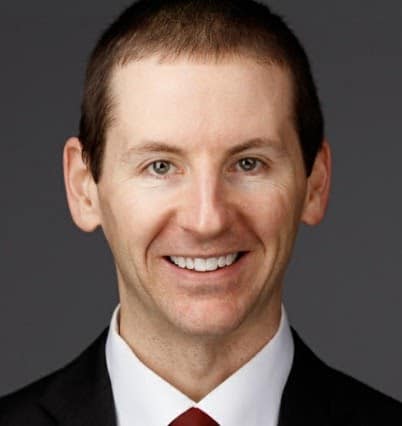Wealthtender is a trusted, independent financial directory and educational resource governed by our strict Editorial Policy, Integrity Standards, and Terms of Use. While we receive compensation from featured professionals (a natural conflict of interest), we always operate with integrity and transparency to earn your trust. Wealthtender is not a client of these providers. ➡️ Find a Local Advisor | 🎯 Find a Specialist Advisor

Accredited investors may participate in certain unregistered securities offerings. Individuals with sufficient income, net worth, and other requirements can access investment products not available to some retail investors.
The U.S. Securities and Exchange Commission (SEC) seeks to protect unsophisticated investors from potentially risky and opaque products. Unregistered securities are thought riskier than traditional assets like stocks, bonds, ETFs and mutual funds. Those wishing to own unregulated securities should work with an experienced financial advisor so that all the risks are understood.
Accredited Investors Have the Access
These risky assets offer high-net-worth individuals the chance to grow their wealth quickly. A significant risk of extreme downside exists, however. Hedge funds, private equity products, venture capital, and crowdfunding activities are just some of the common products available to accredited investors. Unregulated securities also typically feature high minimums, many disclosures, big fees, and a lack of liquidity.
What Does “Accredited Investor” Mean?
According to the SEC, an accredited investor includes anyone who:
- Has an income above $200,000 (or a couple earning more than $300,000) in each of the past two years and expects to earn that amount in the current year
- Has a net worth of over $1 million on their own or with a spouse. It is important to know that your primary residence does not count toward that figure.
- Is a financial professional in good standing with a Series 7, 65, or 82 license. FINRA licenses require passing an exam and often go along with working for an investment firm. (Source: Investor.gov)
Other categories of accredited investors include trusts, companies, and private funds. The SEC simply wants to help ensure that the investor or entity has sufficient knowledge and experience in analyzing prospective investments. In today’s landscape of elevated stock market valuations and low bond yields, there’s growing interest in tapping different investment choices.

One qualification to become an accredited investor is to have a net worth at or above $1M. Often, other investment products and solutions become available to this group of people. Some of those products include private placements and structured products.
Darryl Lyons, CFP®, ChFC®, BFA, AIF | PAX Financial Group
There Are More Accredited Investors Today
The financial requirements listed above have not changed in decades. Hence, there are now more accredited investors. Moreover, there’s an increased count of licensed securities representatives today versus decades ago. Growth in registered investment advisory firms (RIAs) also means more individuals are accredited. According to Don’t Quit Your Day Job, there are nearly 14 million accredited investor households in America as of 2020. That’s 10.6% of all U.S. households.
How Accredited Investors Fit In
Accredited investors play a key role in today’s capital markets. High-net-worth investors finance startup activities like new business formation and are sometimes angel investors. The SEC wants to create a financial environment conducive to capital expansion. Thus, high-risk entrepreneurial ventures need investors who have a high ability and willingness to take risks.
The Process of Becoming Accredited
What’s interesting about the accreditation process is that the responsibility is on a firm to verify the status of its investors. Individuals interested in proving their status usually must complete questionnaires asking for specific financial documents.
A person’s income statement and balance sheet are typical pieces of information needed to confirm that they meet the net worth and income requirements. A credit report is often disclosed too. Individuals and entities should also expect to disclose annual tax returns and other forms. Finally, anyone employed in the securities industry must prove their licensing status. An unregistered security can be sold once all this information is provided. Performing independent research is still a prudent move to ensure you know what you’re getting into.
Knowing Your Accredited Investor Status
Income is quick to find since it is listed on your tax return each year. It is tougher to accurately determine your net worth. It might also be easier to have more than $1 million in net worth than to earn such a large income in a single year. The SEC explicitly states that an investor’s net worth must be above $1 million at the time of the sale of unregistered securities. Your net worth is all assets minus all liabilities (not including your primary residence). Also, a mortgage or other loan on the primary residence does not count as a liability up to the fair market value of the residence, per the SEC.
Assets included in the calculation are bank accounts, 401(k) and IRA accounts, and other investments. Common liabilities are student debt and auto loans, any amount of underwater mortgage, and home equity lines of credit. So long as the positive difference between the sum of your assets and liabilities is greater than $1 million, you meet the net worth requirement.
Conclusion
Companies seeking to bypass cumbersome SEC registration can offer unregulated securities to accredited investors. An accredited investor can access potentially high-risk, high-return investments that can also diversify a portfolio of typical stocks and bonds. The onus is on the firm to perform due diligence on its investors. Since there are more accredited investors than ever before, working with a financial advisor is critical to ensuring that proper due diligence is performed on unregistered securities.

About the Author
Mike Zaccardi, CFA®
Mike is a freelance writer for financial advisors and investment firms. He’s a CFA® charterholder and Chartered Market Technician®, and has passed the coursework for the Certified Financial Planner program.
Learn More About MikeWealthtender is a trusted, independent financial directory and educational resource governed by our strict Editorial Policy, Integrity Standards, and Terms of Use. While we receive compensation from featured professionals (a natural conflict of interest), we always operate with integrity and transparency to earn your trust. Wealthtender is not a client of these providers. ➡️ Find a Local Advisor | 🎯 Find a Specialist Advisor

